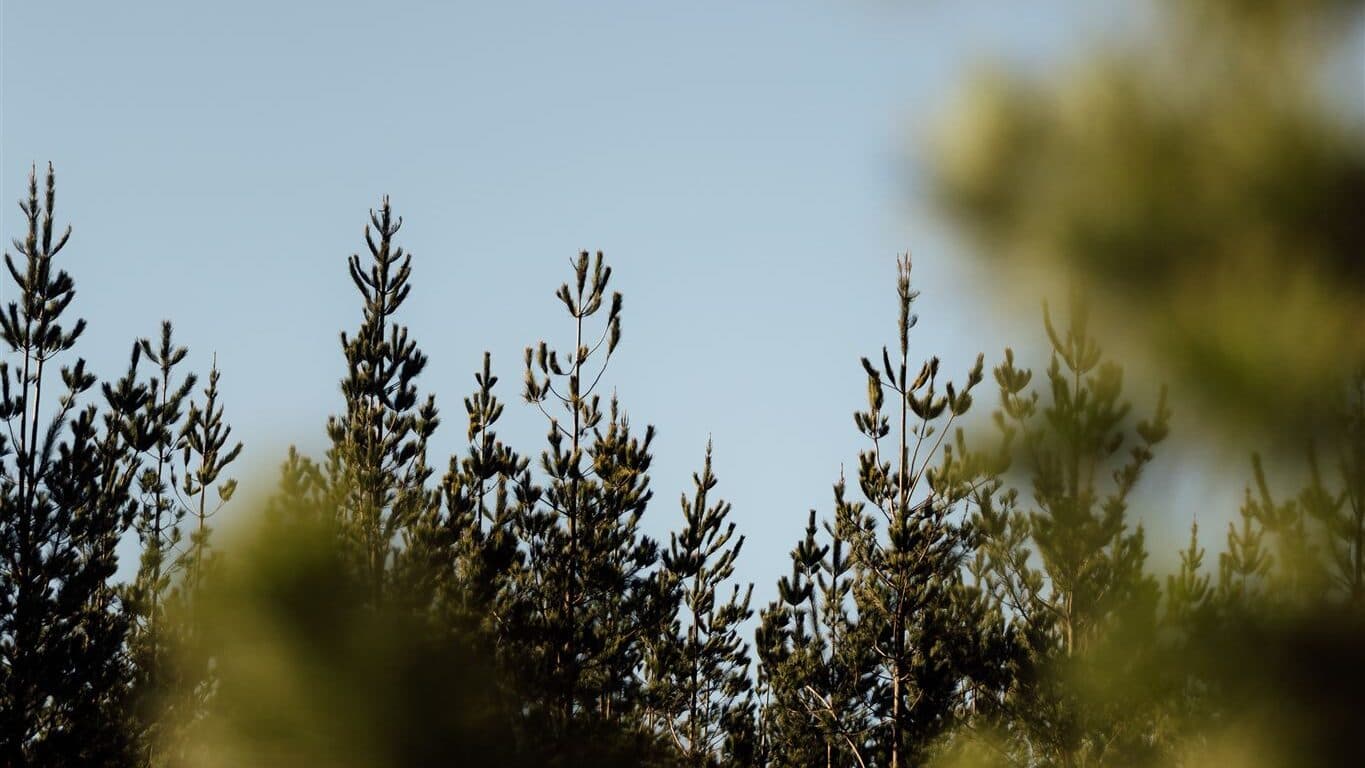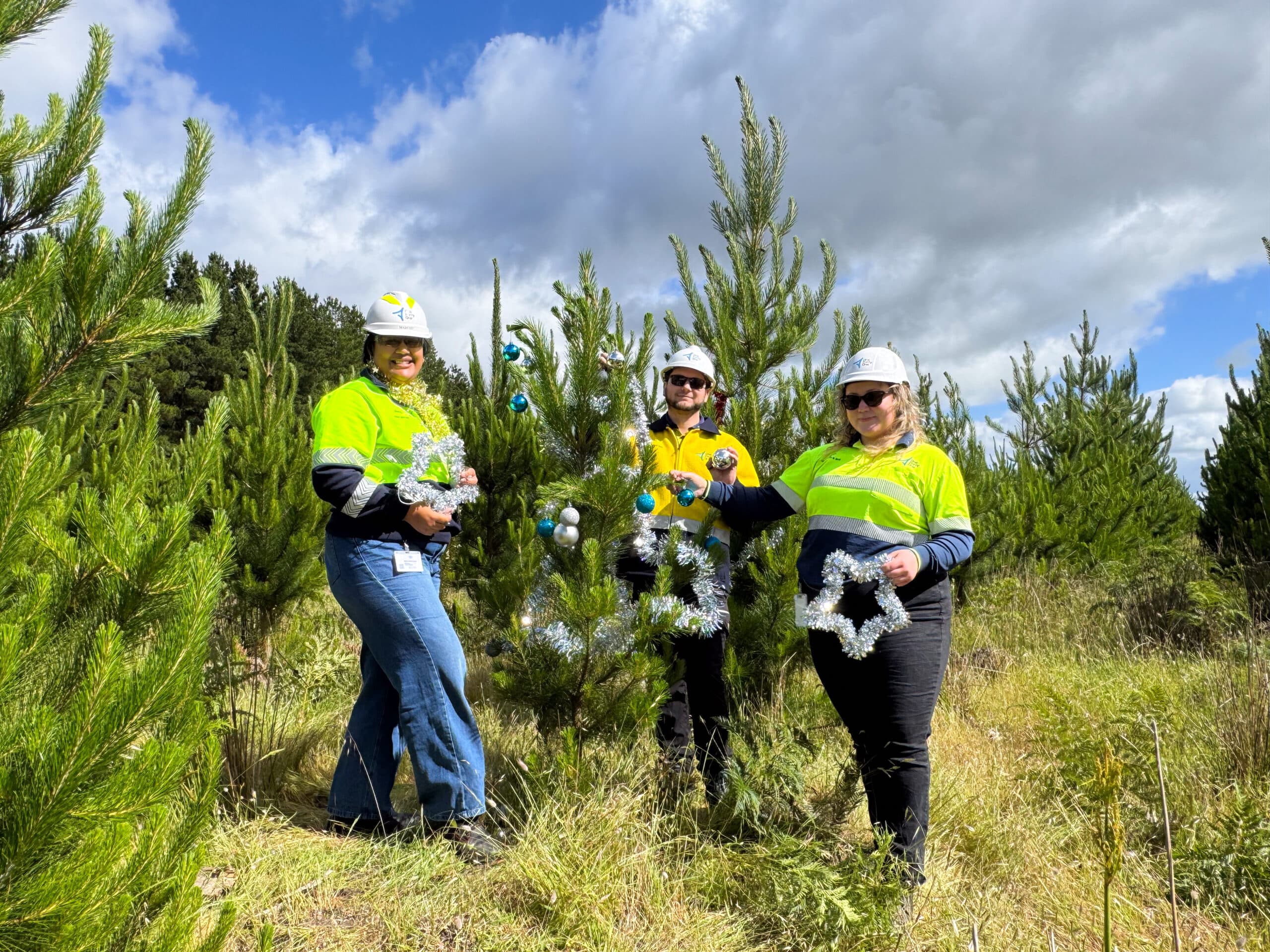After 43 years, Terry calls time on ‘the best job in the world’
22 Jul 21
It’s not every day your family gets a plantation road named in their honour, however in the case of 68-year-old Terry Higgins, it’s well deserved.
The OneFortyOne icon has retired, following a career spanning five decades and centred around a strong family connection to the Green Triangle forestry industry.
North of Nangwarry, Terry stands proudly on the track which will soon become Higgins Lane, surrounded by radiata pine plantations.
Merely a kilometre away is Muddy Flats, the forest reserve accommodation where Terry’s family came to live in the mid-1960s, emigrating from the busyness of central London to rural South Australia.

“From London to Muddy Flats was quite a culture shock,” Terry admits, with a chuckle.
“When we first arrived, I was 14 and Mum and Dad and four kids got off the train at Penola Railway station and we were picked up and taken to Muddy Flats, adjacent to the Riddoch Highway. I remember Mum cried when she saw it.”
Named for its ‘swamp like’ characteristics in winter, the forest reserve had a group of seven houses where Woods and Forest Department workers could live among the plantations.
Following in the footsteps of his father John, who worked for the department in the forests around Penola and Nangwarry, Terry also began working in his school holidays, clearing firebreaks and hand weeding the nursery.
After leaving school, Terry initially worked for ETSA as a linesman before deciding to return to the industry he’d enjoyed so much as a teenager, becoming a forest maintenance worker in 1971.
A few years later, the lure of travel and adventure called and in 1976, Terry took off on his trusty Yamaha 650 motorbike with friends, living and working in Western Australia.
Returning to the South East in 1980, Terry worked for Adrian de Bruin’s South East Afforestation Services, however a tragic event was to set him in another direction.
In 1983, the Ash Wednesday fires devastated the South East, destroying tens of thousands of hectares of forest from Nangwarry to Tarpeena and in Mt Burr.
Following the fires, a huge salvage operation began to make use of the burnt timber and re-establish the forests and many jobs were created to assist with the clean-up operation.
Nine days later, Terry started work in the Nangwarry Mill for the Woods and Forest Department, stacking timber on the ‘green chain’, which graded and stacked the raw timber.
“It was very hard, heavy work but very rewarding,” Terry recalled.
“You knew you were part of a big crew and there was a bit of a feeling the real men worked on the green chain. To me hard work is its own reward.”
Six months later, a vacancy came up for a forest maintenance worker.
Just like that, Terry was back in the Penola forests, a place he called his ‘spiritual home’ for the next 38 years.
During his 43-year career, Terry performed nearly every role imaginable, working his way up from maintenance to machinery operator to geographic information services work and supervisory roles.
“From hanging around so long, you get to know it all, from handplanting to machinery to hand marking – you name it, I’ve done it,” he said.
In 2016, he was made the Area Foresters and District Manager for the Penola forests – the pinnacle of his career.
Terry found his forte in silviculture, saying he found creativity and satisfaction in seeing the growth and development of the plantations.
“I’ve always worked on the silviculture side of forestry and I love it,” he said.
“It’s about creating a forest that can be the best it can possibly be in 32 years time,” he said. “To see a tree in the ground as a seedling and then watch them grow to their full potential is very satisfying.
“I’ve worked long enough to see entire rotations go through from seedling to harvest and replanted again.”
Being able to spend time in the peace and quiet of the forest environment is something Terry will always value as his favourite part of the job, and an experience he enjoyed initiating his fellow colleagues in.
“It’s quiet and the enormity of it – when you’re in a 32-year-old plantation, it’s extremely peaceful,” he said. “I think the term is far from the madding crowd’.
Often, Terry would quietly suggest an afternoon walk in the plantations to any fellow colleagues he felt were stressed or needed a break from computer screens.
Considering it his mental health duty, Terry earned the nickname ‘Mr Sparkle’ for his ability to cheer up his colleagues.
“I’d say to them ‘come for a walk in the pines and put a bit of sparkle back in your life,’ he said, with a laugh.
During the last twelve months in OneFortyOne’s Transition to Retirement program, Terry was dubbed ‘Cecil B. DeHiggins’, after his Hollywood approach to develop a fire training video series for the company.
Utilising his decades of experience fighting and managing forest fires, Terry interviewed 100-plus workers about their fire experience, wrote scripts and helped direct the series of short films, which will be used to help prepare employees for busy fire seasons.
Fire protection and management, along with the mechanisation of jobs, has been one of the biggest industry changes during his time on the job, Terry said.
“When I first started fighting fires, there was no Personal Protective Equipment (PPE) and you were lucky to get a pair of goggles. Now, we’re extremely well protected,” he said.
Terry encouraged anyone considering a career in forestry to take the opportunity, saying the sky was the limit.
“Honestly, it’s the best job in the world,” he said.
“You can go to university and get a forestry degree but there’s also jobs in harvesting, transport and mechanics. There’s so much you can do. I cannot believe how lucky I’ve been.”
Ironically, Terry retires the day after his wife Louise and two weeks before his 69th birthday.
All those silviculture skills will be put to good use in the home garden beds, Terry said and he’s looking forward to bushwalking and more time in the environment which has played such a big role in his life.
The day the sign goes up on Higgins Lane will be a proud one for his family.
“My family has had 55 years continuous involvement in South East forests so it’s a recognition of my family as well as me,” he said.
“My family are quite taken by it and we’re looking forward to getting out there and getting a photo with the sign. It’s a real honour.”
News & Resources

12 Jan 26
Community
From paper to pixels, Mount Gambier History Group’s archive goes digital

15 Dec 25
News

04 Dec 25
News

27 Nov 25
Our Stories
OneFortyOne acknowledges the Traditional Custodians of Country throughout Australia and their deep connections to land, water, and community. We pay our respect to Elders past and present and extend that respect to all First Nations people today.
In Aotearoa New Zealand, Māori communities have a strong spiritual connection between people and the land – the wellbeing of one sustains the wellbeing of the other. We strive to build meaningful relationships with iwi as tangata whenua (people of the land/region), to be responsible intergenerational kaitiaki (stewards/guardians) of the land where our forests grow.

